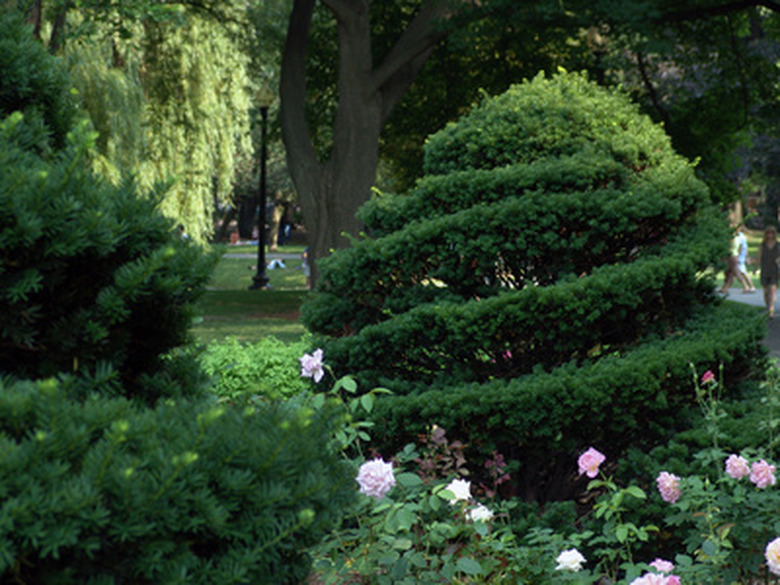How To Stop Mushrooms From Growing In A Rose Garden
Things Needed
- Garden gloves
- Hand trowel
- Dry, coarse mulch
The nutrient-rich and always moist soil around roses can be a breeding ground for mushrooms and other fungi, particularly when the weather turns rainy or humid. Although they are a visual nuisance, mushrooms do not harm the rose plants themselves. Removal and cultural adaptations to the surrounding soil can usually keep them at bay. If colonies of mushroom or other fungi seem persistent throughout the year or appear attached to the base of the rose bush itself, it may be a sign of a more serious problem, such as a disease in the plant that will require diagnosis, treatment or removal of the affected plant.
Step 1
Don a pair of garden gloves and pull the mushrooms from the soil and discard them. Alternatively, use a hand trowel and dig out the shallow fungi just a inch or so down and throw them away. Do not compost the mushrooms as the spores may not always be killed by the heat level of every compost process.
- The nutrient-rich and always moist soil around roses can be a breeding ground for mushrooms and other fungi, particularly when the weather turns rainy or humid.
Step 2
Clear the soil around the roses of any other weeds, dropped petals, shed leaves, cane cuttings or any other rotting debris that helps to encourage fungal development.
Step 3
Increase airflow to the surface soil around the roses by choosing a coarse, loose mulch over heavier, dense organics such as manure. Lay down 2 inches of coarsely shredded bark, cocoa bean husks or wood chips several times a year. They will keep surface conditions somewhat drier and less hospitable to the mushrooms.
Warning
If mushrooms or other fungi-like structures develop repeatedly around your roses even when conditions are not rainy or humid, it may be a sign of root rot or other disease internal to the rose plant. In that case, fungicides may help or the plant may need to be removed. A nursery specialist may be able to help determine the problem if you can bring him a sample of the mushroom-like structure in a resealable plastic bag.
